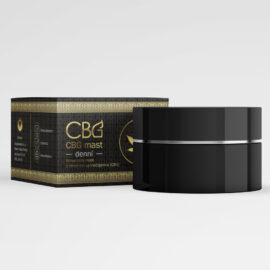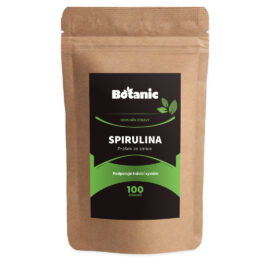Insomnia is a widespread problem nowadays. When you don’t get enough sleep, you are without energy, tired all day, hypersensitive and also have weaker immunity. Some research suggests that CBD can help you get a good night’s sleep. But how to use CBD and what does current research say? We’ll cover that below.
CBD and better sleep
Products that may be of interest to you
To understand whether CBD can improve sleep, we first need to find out what causes poor sleep. A wide range of factors can contribute to poor sleep, including:
- mental health disorders such as anxiety, post-traumatic stress disorder and depression;
- medications that can disrupt your sleep cycle;
- physical problems such as chronic pain and restless leg syndrome;
- caffeine, especially if consumed at later hours;
- environmental factors such as loud noises or an uncomfortable bed;
Of course, CBD won’t help with some factors, but it can help with others. While CBD research is still in its infancy, some research suggests that CBD can effectively treat feelings of anxiety;
What does the research say?
Research from 2019 (link to research) examined whether CBD could improve sleep or reduce anxiety. The study included 72 subjects, 47 of whom had anxiety and 25 had poor sleep. The subjects were given 25 milligrams (mg) of CBD in capsule form each day. In the first month, 79.2 percent of the subjects reported lower levels of anxiety and 66.7 percent reported better sleep.
If pain prevents sleep, CBD can help in that case too. A 2018 publication (link to publication) stated that there is a substantial body of evidence to support the claim that CBD relieves pain. The authors note that by reducing chronic pain, CBD may improve sleep.
Other research tells us that CBD affects the sleep cycle. Research from 2014 (research link) examined four patients with Parkinson’s disease. CBD was found to improve their sleep disorder symptoms.
A 2017 publication (link to publication) also noted that CBD may be useful in the treatment of rapid eye movement sleep behavior disorder (RBD) and that it shows potential for treating excessive daytime sleepiness.
How CBD works to improve sleep
Even studies that have concluded that CBD can improve sleep aren’t always able to say why, how exactly it works. Most of the studies mentioned above emphasize that we need more research on CBD to fully explore and understand its effect on sleep.
As mentioned above, many scientists claim that CBD improves sleep because it addresses the underlying causes of insomnia. As more research is done on CBD, we’ll learn more about why and how it can help us sleep;
How to use CBD for better sleep
CBD can be used in many ways. The dose of CBD you use and the length of time you take it will depend on a number of factors, your weight, your body chemistry, or the nature of your sleep problems. It’s always a good idea to start with a low dose of CBD and see what effect it has on your body. Only then can you increase the dose.
Most clinical studies on CBD and sleep have involved giving subjects a dose of roughly between 25 mg to 1,500 mg of CBD per day. It is best to start with a low dose and gradually increase it until you find a dose that works for you;
Much of the research on CBD, anxiety and sleep has noted that many patients don’t notice an immediate difference. The 2019 study above noted that it took about a month for subjects to notice a difference. Be patient, and remember that results are likely to appear only with long-term use.
Side effects and safety concerns of using CBD
Doctors rarely recommend taking sleep medications for more than a few weeks. While CBD and other medications can be helpful, it’s important to get to the root cause of your sleep problems. Consult your doctor first before taking CBD for insomnia, and especially if you are taking any medications could interact with CBD. Your doctor can also examine you to see if your insomnia has a different cause than you think;



















